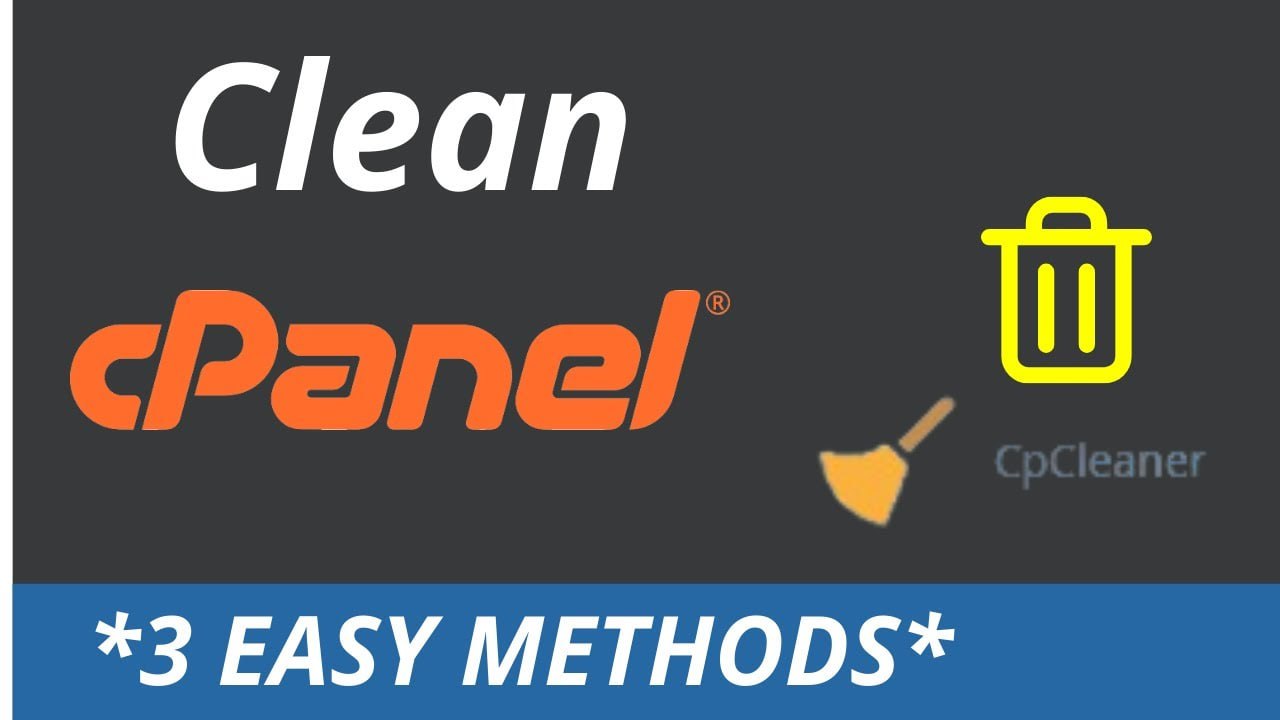
In the world of website management, keeping your hosting environment clean is essential for optimal performance and security. Over time, residual files can accumulate on your server, occupying precious storage space and potentially exposing your website to vulnerabilities. Automating the process of cleaning residual files from your cPanel website can save time and ensure your server remains tidy. In this article, we'll explore various methods to automate residual file cleanup on cPanel websites.
A- Understanding Residual Files
Residual files are temporary or leftover files that accumulate on your server over time. These files can include temporary backups, cache files, log files, and other temporary data generated during website operation. While some residual files serve temporary purposes, others are unnecessary and can be safely removed to free up disk space and improve server performance.
B- Automating Residual File Cleanup
Automating residual file cleanup involves setting up scripts or tools to regularly scan your server for unnecessary files and remove them. Here are several approaches to automate this process on cPanel websites:
1- Cron Jobs:
Utilize cron jobs to schedule regular cleanup tasks. You can create a cron job that executes shell commands to remove specific types of files or directories. For example, you can use find command to locate and delete log files older than a certain date.
2- Custom Scripts:
Develop custom scripts using languages like Bash or Python to automate cleanup tasks. These scripts can be tailored to your specific cleanup requirements, such as removing cache files, temporary backups, or log files from designated directories.
3- Third-Party Plugins:
Explore third-party plugins or applications designed for server management and automation. Many hosting control panels offer plugins or integrations that facilitate automated cleanup tasks. Look for plugins compatible with cPanel that provide features for scheduled file cleanup.
4- Disk Usage Analysis Tools:
Deploy disk usage analysis tools to identify areas of high disk usage and locate residual files. Tools like ncdu (NCurses Disk Usage) provide a visual representation of disk usage, allowing you to pinpoint directories consuming significant space. Once identified, you can automate the cleanup of these directories.
D- Best Practices:
When automating residual file cleanup, consider the following best practices to ensure efficiency and safety:
1- Regular Maintenance: Schedule cleanup tasks to run regularly, such as weekly or monthly, to prevent excessive accumulation of residual files.
2- Backup Precautions: Before implementing automated cleanup processes, ensure you have proper backups in place to prevent accidental deletion of critical files.
3- Test in Staging: Test your cleanup scripts or tools in a staging environment before applying them to production servers to avoid unintended consequences.
4- Logging and Monitoring: Implement logging mechanisms to track cleanup activities and monitor disk usage trends over time. This helps in troubleshooting and ensuring the effectiveness of cleanup routines.
Conclusion
Automating residual file cleanup on cPanel websites is a proactive approach to maintaining a clean and efficient hosting environment. By leveraging cron jobs, custom scripts, third-party plugins, and disk usage analysis tools, website administrators can automate the removal of unnecessary files, freeing up disk space and enhancing server performance. Adopting best practices ensures safe and effective cleanup processes, contributing to the overall stability and security of your cPanel website.








